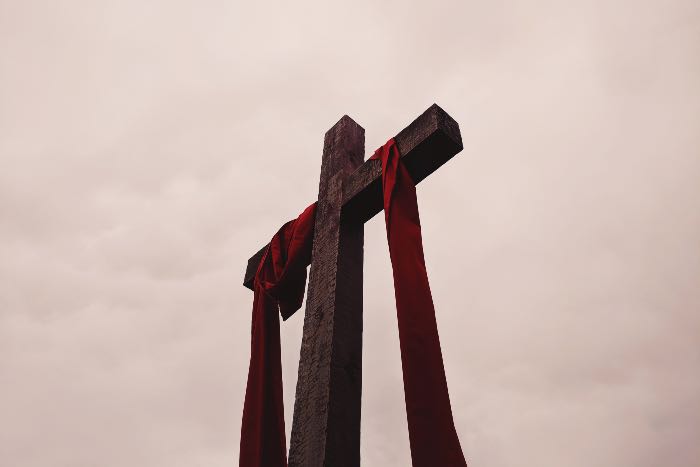
We get an ending knowing it is no ending.
For Sunday
Proper 29C
Collect
Almighty and everlasting God, whose will it is to restore all things in your well-beloved Son, the King of kings and Lord of lords: Mercifully grant that the peoples of the earth, divided and enslaved by sin, may be freed and brought together under his most gracious rule; who lives and reigns with you and the Holy Spirit, one God, now and for ever.
Amen.
Reading
From Luke 23:33-43
“One of the criminals who were hanged there kept deriding him and saying, “Are you not the Messiah? Save yourself and us!””
Reflection
We have come to the end of the liturgical year, known as the last week after the Epiphany. Next week, we begin a new year with Advent.
On this last week, we are given a strange final gospel story: Luke’s depiction of the crucifixion of Jesus.
He has been tried, beaten, and marched to the hill. And then here, in his last conscious moments, he is mocked. Mocked by religious leaders and soldiers. Even one of the insurrectionists being crucified next to him.
This is a grim ending.
While we know the story doesn’t end here, it really is a weird place for the church to leave us. Especially in the United States, where we’ll turn from this to Thanksgiving preparation and getting in the holiday spirit.
As we wrap up our Christian calendar with this troubling story, perhaps we can notice what is not present in the story.
The most glaring absence in the story is remarked upon by the leaders and by one of the condemned: divine intervention. Either on the part of God stopping the evil hands of human beings or on the part of Jesus overwhelming the people with his own power.
Where they see absence as dispositive of Jesus’s weakness, many more throughout history have seen the opposite. Or more precisely, the comparative weakness of the executioners and the commitment of Jesus to his part in the cosmic gambit.
I’ve always bristled at this moment.
Not at the death (which is yet to come) or the torture that surrounds it (that’s already unsettling), but at the neighbor’s suggestion. He seems to be arguing that Jesus can only be powerful if he climbs down from the cross (and frees him, too!).
As if power begets using it.
As if restraint isn’t an expression of power.
Rather than prove the power of God, it would prove Jesus a fraud. Another huckster offering a message of love to a cult willing to follow him into death.
The vision we are left with, of Jesus receiving the abuse of the powerful and the scorn of one of the condemned, is also of the masses weeping at the injustice. And me, looking at those seduced by power with eyes of pity and compassion. Because they really don’t know what they are doing.
